Odoo BI - Business Intelligence Reporting
Business intelligence is a player that has become more well-known around the world recently, or in the last decade of the new era. But, what really is business intelligence, precisely? As everyone does, I looked it up on Google and found hundreds of definitions, examples, and context describing the business intelligence aspect of a company, case studies, and tools in great detail. The following is a definition I came up with based on my understanding and, of course, reading about it while searching for it previously.
Business intelligence would be defined as a collection of operational core values integrated technology, and operational methodology that all point to the same goal of analyzing data and providing a better solution to run the organization, solve problems, and generate profits through planned actions. Today, there are a variety of business intelligence advancement tools that are easily accessible, and these tools focus on various aspects such as data warehousing, dashboards, data discovery tools, cloud services, and more.
So, how does reporting relate to business intelligence, and what exactly is BI reporting? This is likely a question that comes to mind as soon as you read the blog title. The methodology of generating analytics data based on the analysis and management of the data at hand using various BI tools is known as business intelligence reporting. Furthermore, BI-based reporting will provide insight into the company's functioning and operations trajectory based on the data available, thereby improving decision-making and overall business performance in an organization.
This Blog will give you an overview of Odoo BI Reporting.
This Blog will give you an overview of Odoo BI Reporting.
Odoo BI Reporting
Odoo, as you may know, is a sophisticated ERP that can manage a company's business operations at all levels of procedures. It has grown to become one of the most popular ERP solutions available, with more than 5 million+ users spread across various industries and levels of company operation. Odoo is a sophisticated business management platform with

sophisticated tool integration and functionality. Additionally, because business intelligence is an unavoidable factor in today's business world, the Odoo platform has integrated it into its operations.
The most recent edition of Odoo, Odoo 14, was released last year during the Odoo experience of 2020 and is considered one of the most powerful management systems for business management operations available today. Furthermore, relative to all previous installments of the platform, Odoo 14 is the fastest and most mature in terms of capabilities. The spreadsheet function contained in the documents modules is the best example of Odoo 14's advanced new feature.
Spreadsheets
Spreadsheets
The spreadsheet feature of the documents module is the best example of the Odoo platform's business intelligence approach. Furthermore, the fusion operates in the same way as an excel spreadsheet and has all of the requisite functionalities. Furthermore, the spreadsheet functionality contributes to the statistical and forecasting aspects of the business and its operations, allowing for the development of BI-based reports.
The Odoo spreadsheet functionality can be accessed via the documents module. If the documents module isn't visible on Odoo's home screen, you can get it from the application menu. When you first enter the documents module, you'll see a home dashboard with a list of all the documents available. You can choose the Create Spreadsheet option from the dashboard, as shown in the image below. Furthermore, if a spreadsheet has already been created, it will be displayed alongside the other documents in the list. The dashboard for the documents modules can be seen in the screenshot below.
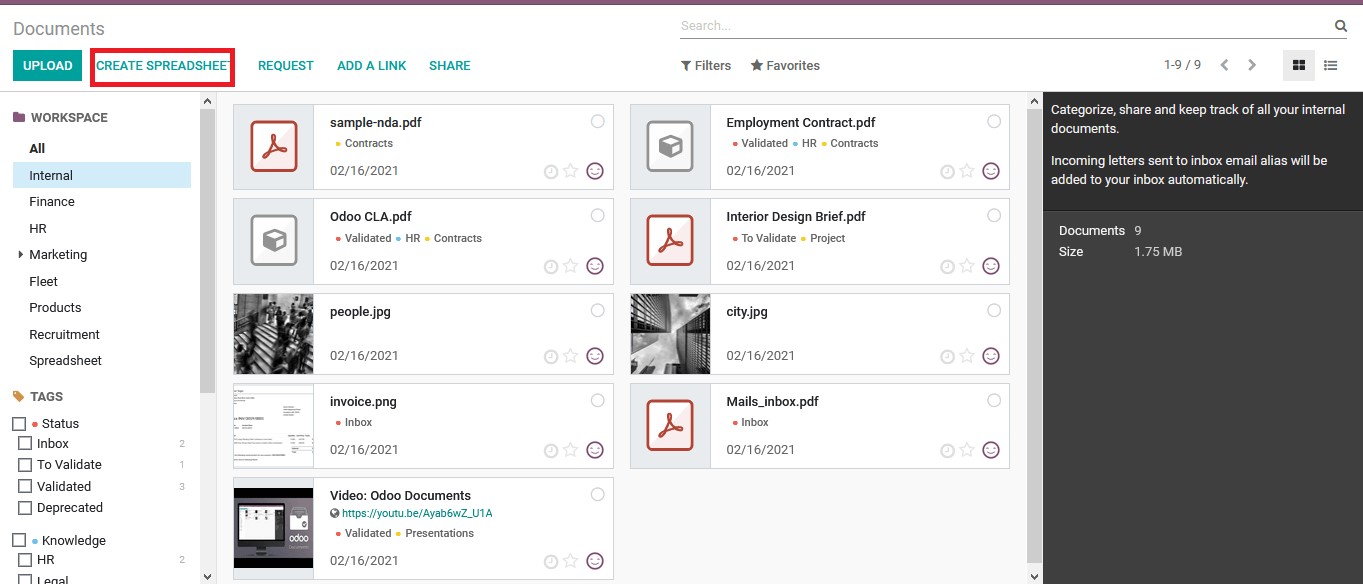
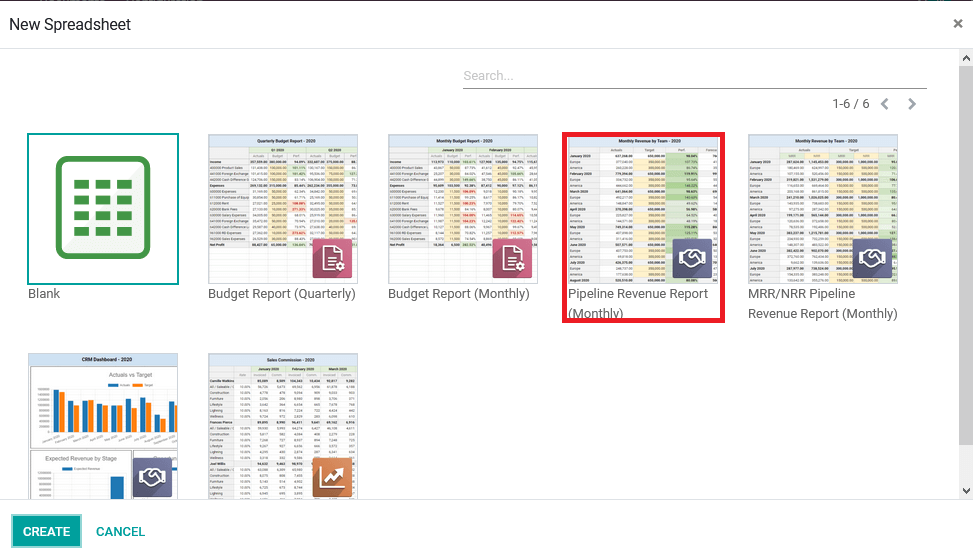
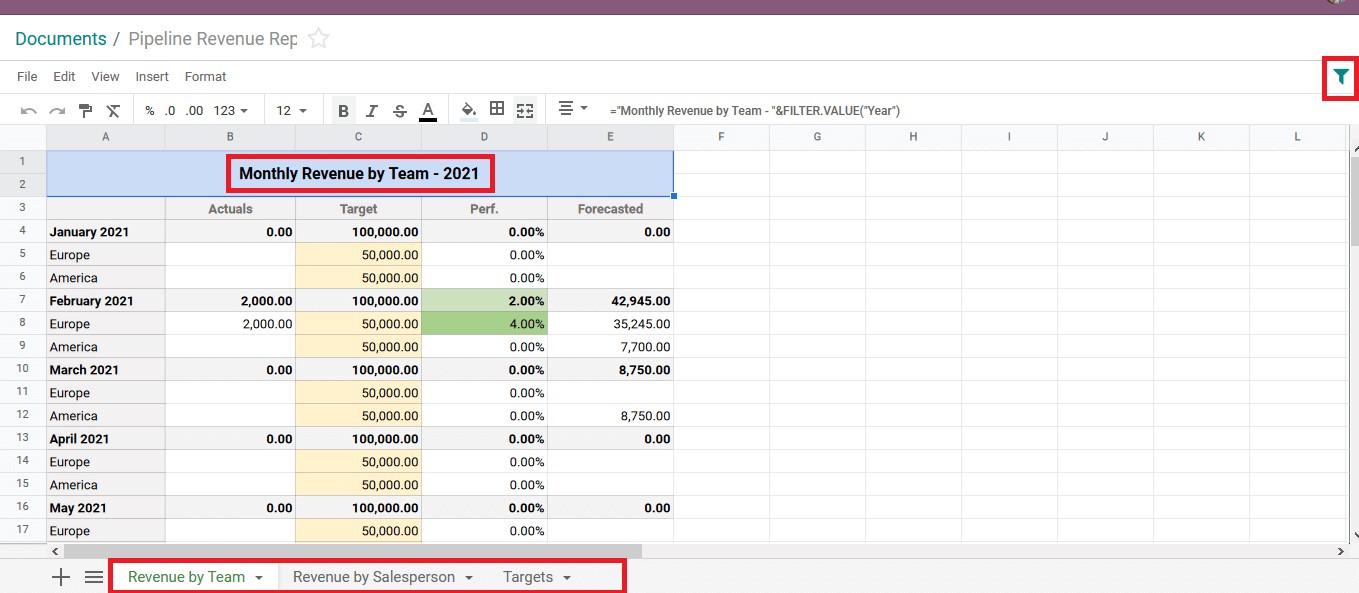
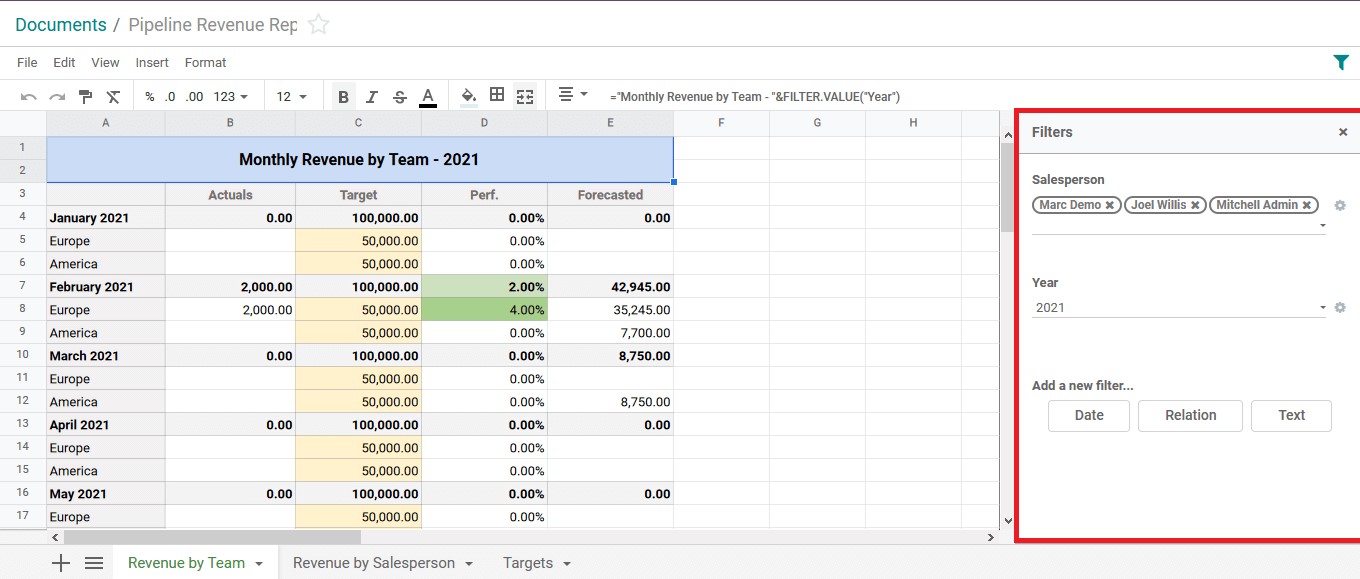
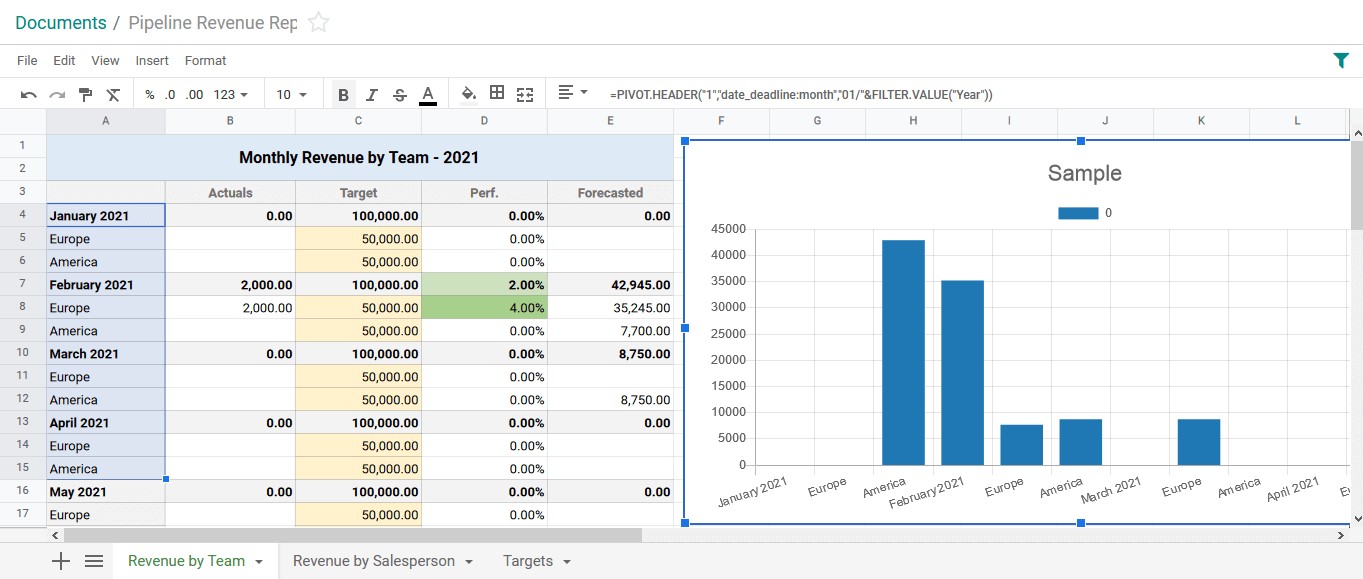
As of now, you'll have a clearer understanding of the Odoo platform's reporting functionality, as well as how the business intelligence feature is incorporated in it, with forecasting data available in each chart based on previous data.
Conclusion: Odoo BI - Business Intelligence Reporting
Implementing Odoo BI tools and analytical reporting features in different business systems allows you to remain ahead of your competition and retain a competitive edge. Predictive analytics algorithms are good at extrapolating the success rate of potential business projects and enhancing decision-making. Simultaneously, BI software assists you in assessing your customers' interests, expectations, and buying patterns. Business Intelligence BI tools use sentiment analysis to understand your clients' priorities and allow you to fine-tune your marketing strategy accordingly. Odoo14 offers all of these features and more to help you reinforce and streamline your business processes.
We, ERP Cloud, provide end-to-end Odoo ERP development services to address specific business challenges for cross-industry use cases. To achieve maximum benefits, our development team carefully analyzes your business requirements and formulates effective strategies using Odoo BI- Business Intelligence application development. We also provide full-scale Odoo Business Intelligence product development services in order to integrate groundbreaking data analytics features that help deliver personalized user experiences. We've successfully completed several full-scale Odoo ERP growth projects for start-ups and small-to-medium businesses all over the world. For more details, please contact us at sales@erpxcloud.com.
Latest Posts
50,000+ companies run Odoo to grow their businesses.
Join us and make your company a better place.
Odoo BI - Business Intelligence Reporting